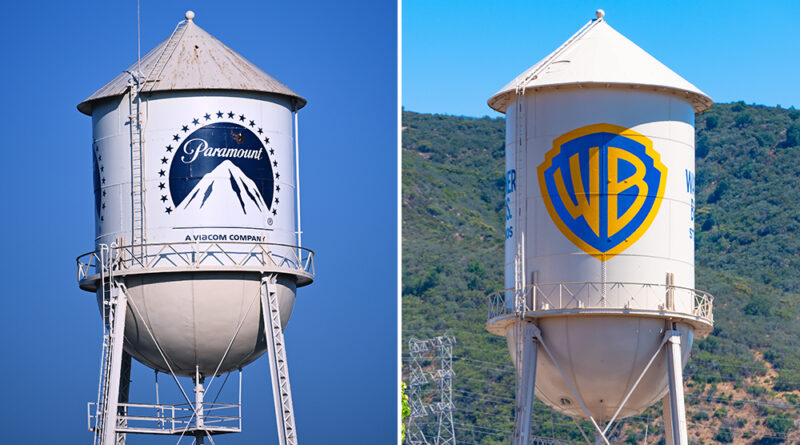Paramount Eyes Warner Bros. Discovery in Potential Media Consolidation Move
As the expansive world of media continues to evolve, Paramount, under the helm of its new owner and CEO, David Ellison, is reportedly eyeing a new acquisition move which is eager to add Warner Bros. Discovery to its robust collection of businesses. Alongside, with its potential buy-out is CNN, one of the most prominent news outlets that could be integrated into a media portfolio that already houses CBS News. This possible purchase may bring unprecedented implications for CBS, raising concerns about the bigger issue of increased media ownership by billionaires, deemed worrisome for a democratic society.
The potential of Paramount’s acquisition of CNN signals a significant shift for the news outlet and could potentially pose a severe challenge to CBS News. The continuous accretion of major news platforms under the authority of a handful of wealthy individuals has begun to garner apprehension. The reinforcing pattern of media consolidation by the billionaire elite has raised eyebrows and emerging as a potential threat to the diversity of the media landscape.
Originating from The Wall Street Journal, word spread that not long after their acquisitional success over Paramount Global, the Ellison family seems to have set its sights on Warner Bros. Discovery. Part and parcel of this potential acquisition is the possibility of adding the control of CNN under their expansive umbrella. Therefore, causing a ripple effect that would directly impact the extensive field of American media.
The ongoing internal changes within CBS News, particularly those leading to a more conservative direction in coverage, have stirred the pot in the broadcasting community. Media reform within CBS News has provoked questions over the future course of the news outlet and the repercussions on its programming. These shifts have led some to ponder the implications for the network and the delicate balance of news coverage in an increasingly polarized media landscape.
Recent times witnessed a change of hands in the ownership of CBS News, catching the globe’s attention. The Ellisons, ranking among the wealthiest individuals on the planet, effectively took control of the media outlet and stirred up anticipation of what’s about to unravel within its existing landscape.
The newly vested ownership in CBS and the speculative acquisition of CNN by the wealthy Ellisons, paves the way for conjectures about potential shifts in the tone of coverage. Some speculate on a pro-Trump stance in the face of the changes implemented by the billionaire owners which ignites debates on the sphere of influence of these media moguls on the journalistic values upheld by these outlets.
While it remains important to recognize that these shifts are yet speculative, the underlying concerns continue to deepen, particularly given the potential supremacy of billionaire-owned media companies. The worry is not just about a less diverse ownership structure, but also the potential cascading effects media consolidation may have on narrative control, public opinion manipulation and effective gatekeeping within journalism.
The looming question around the over-consolidation of media power in the hands of billionaire moguls is a conversation that transcends political allegiances. It’s an evaluation of a scenario where paramount decisions pertaining to information dissemination are made by a select few, potentially straitjacketing the breadth and depth of news coverage. This is as much a matter of democratic health as it is about corporate interests.
The underlying message in the speculated Paramount acquisition and the shifting CBS News isn’t just about business changes and directional shifts. It’s a wider narrative about the state of the contemporary journalism landscape and the space and freedom it offers for diverse, unbiased reportage.
Media’s role in a democratic society is to uphold objectivity, fair coverage and free, truthful information dissemination. Bona fide journalistic practice requires an environment free from dominance by a few ultra-wealthy individuals or conglomerates. The concerns about the growth and consolidation of billionaire-owned media conglomerates are thus far more than theoretical.
Fear of a potential, unfavorable swing in news programming strategy in the direction of conservative viewpoints due to these acquisitions, raises multiple important considerations, about both the present and future state of media, press freedom, and the role of journalism in serving the public.
In conclusion, the potential implications of the speculated Paramount and CNN agreements, along with the confirmed changes at CBS, are yet to unfold. The immediate tangible impacts on the news industry are uncertain, however, the ripple effects of such changes on the journalistic landscape are a topic of pressing concern to many.
The ongoing speculation and changes underscore the necessity for diligent scrutiny and constant dialogue about media ownership, its concentration, and the subsequent effect on journalistic standards. In an era where information is power, the labyrinthine machinations of media consolidation call for a broader awareness about the stakes at play.

